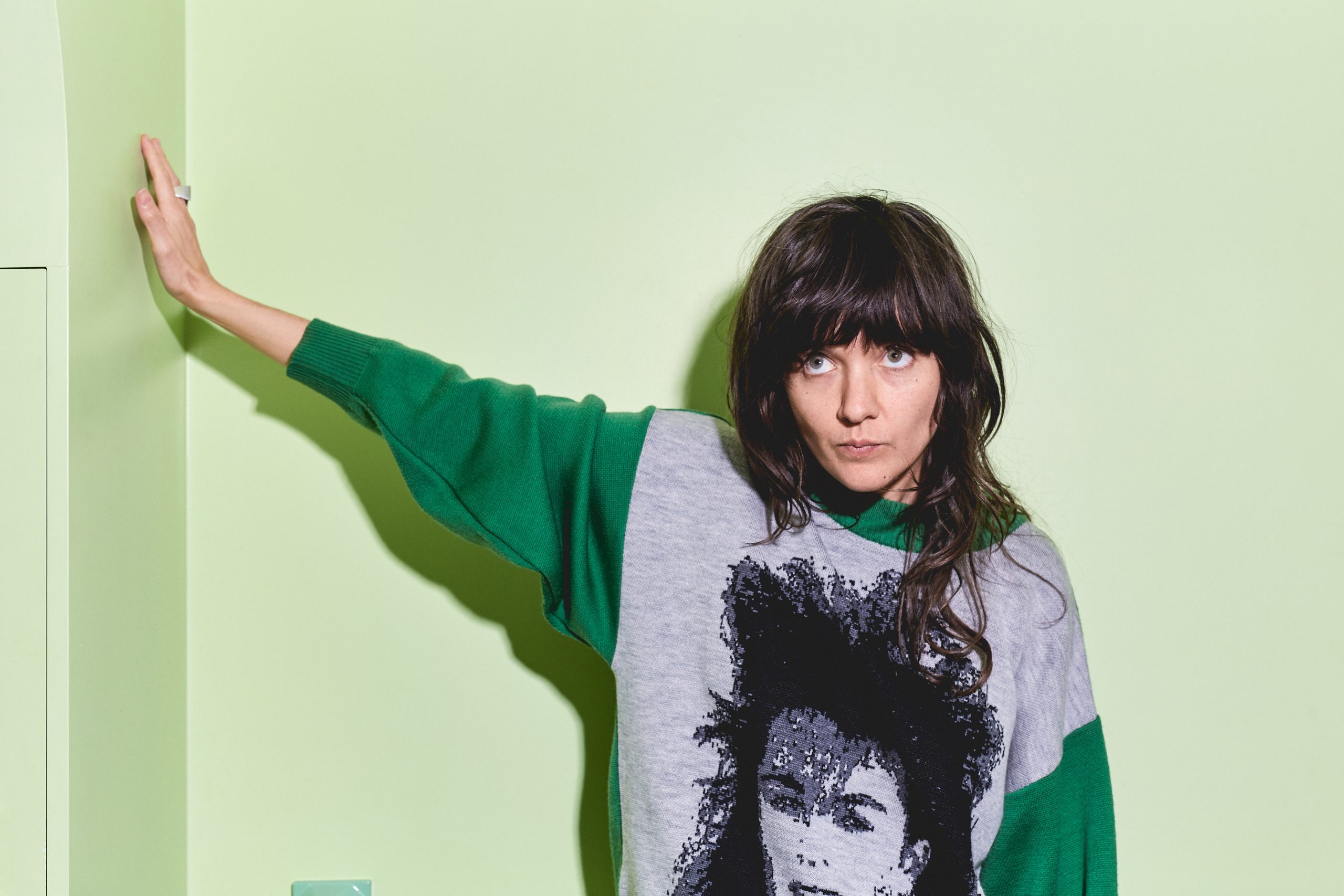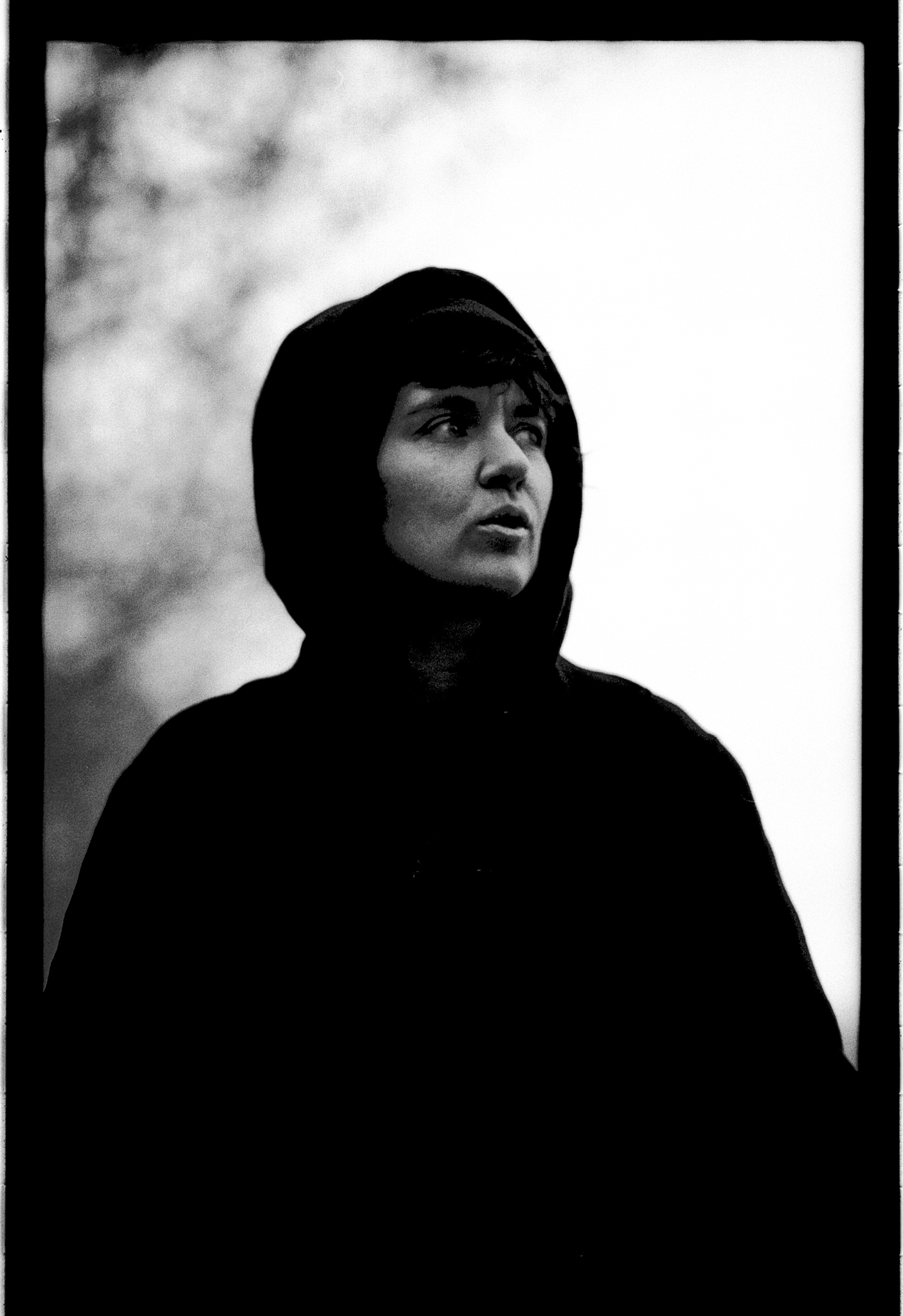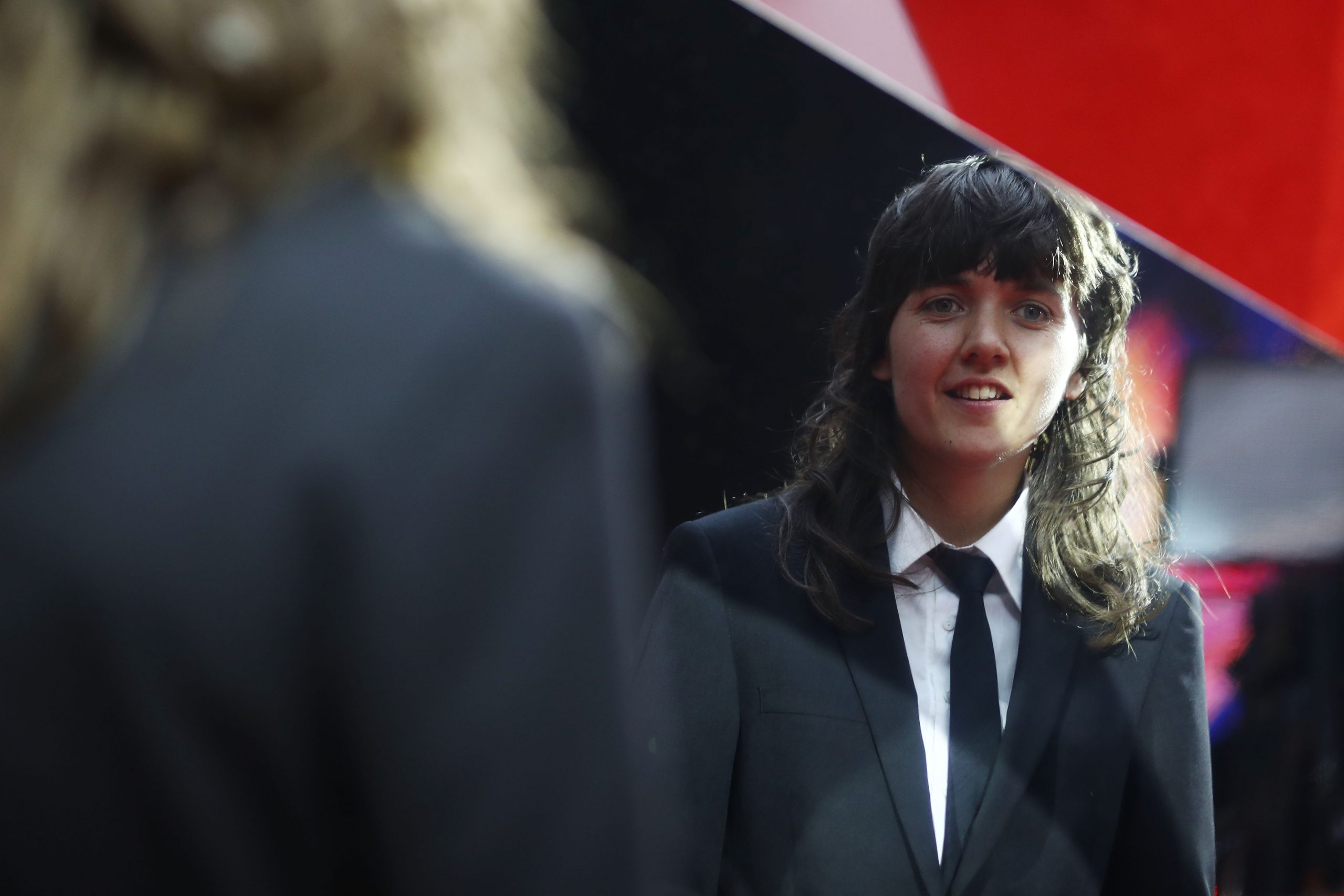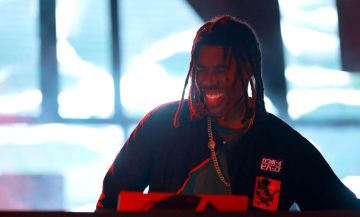
We caught up with Aussie singer-songwriter Courtney Barnett to discuss the making of her third studio album, Things Take Time, Take Time, the evolution of lyrics and how consuming social media can be for an artist.
“It’s been really nice to get back into the world and play again,” reflects Courtney Barnett from her portable cabin backstage at BST Hyde Park. We’re speaking just as the 34-year-old is about to wrap up her first clutch of European dates since 2019 with a prestigious supporting slot on The Rolling Stones bill and she’s in a relaxed mood.
In fact, Courtney’s in such a relaxed mood that although her unmistakable, laconic drawl is present when we meet, she’s also not long awake after a short nap. As she wrestles with her bearings, “umms” and “likes” offer place-holding punctuation before she hits her stride. The weather is unusually hot too, the sun beating down with a humidity that might remind the Australian artist of home.
Speaking of home, Barnett’s third album, 2021’s Things Take Time, Take Time, emerged from the “mega-long Melbourne lockdown” thanks to the COVID-19 pandemic. It’s a record that somehow reflects the period – sparser than previous outings, with the raucousness dialled down in favour of a more meditative soundscape to house the musician’s ever-incisive wordplay.

Out of necessity, recording sessions had to be kept “small”. Whereas Barnett would often play multiple instruments on her demos before recruiting outside help, this time restrictions made it unfeasible. She “officially” grasped bass and piano duties herself on top of her guitar-and-vocal responsibilities. Warpaint’s multi-instrumentalist Stella Mozgawa provided the rest in the form of drums, synthesizer, and keyboards.
Barnett isn’t keen on labelling it a ‘lockdown album’ but concedes that it signals a more “introspective” mindset likely fuelled by time spent indoors on a diet of news bulletins. “A lot of the new album revolves around the news, because that was all I was consuming,” she considers. “There was so much stuff around that year, like Trump, the pandemic, etc. It might not be said outright, but it’s deep in there. A lot of hopelessness-versus-hope and that struggle.”
Her songs may be packed with first-person narratives and candid confessionals racked by self-doubt, but over the course of the interview it becomes clear that Barnett is less keen to be drawn on personal matters. “I just don’t love talking that much and don’t love talking about myself that much,” she offers unapologetically. “I used to think I was shy, but I think I’m just quiet, and there’s a difference between shy and quiet. I mean, it’s fine, I don’t mind it, but I don’t know if I’m that shy.”
In terms of her childhood, Barnett says she grew up “away from the uptown” in northern Sydney, a self-professed “quiet kid” who would spend her time observing the world around her. “I drew a lot, and I wrote a lot,” she recalls of her younger years. “It was probably a reaction to my surroundings. I spent a lot of time by myself or with my brother, listening to music. You learn how to observe in those scenarios.”
After turning her attention to making music, her early twenties were spent in Melbourne on the open-mic circuit, ploughing away in various bands soaking up “what all the scenes were”, along with the all-important, “who did what”. In 2012, Barnett set up her own record label Milk! Records and released a slew of EPs, including the critically acclaimed The Double EP: A Sea of Split Peas. By the time her whip smart Sometimes I Sit and Think, and Sometimes I Just Sit debut album arrived in 2015, the buzz had spilled over into sales, and widespread acclaim was hers.
Both that album and 2018’s equally lauded Tell Me How You Really Feel marked the arrival of an articulate, new voice, whose songs were packed with clever couplets and captivating indie melodies. There was progression too, something seen as vital to the songwriter. “To me, making an album is not about fulfilling a quota,” she says of the process. “It’s about documenting a time and pushing myself to learn something new.”
‘Learning something new’ is a concept that can take many forms for Barnett, “whether it’s musical, technical, or psychological”. “Whatever you go through in the process of writing those songs or the experiences that you go through in the process of making it – whether it’s good or hard – that’s what it’s about to me.
“How do you make another album dealing with the same stories that we all go through and our same thought patterns but in a different era of our lives – and maybe a different environment? How do you make that interesting to yourself? A lot of the joy comes out of experimentation and just learning different things. That’s why I like making music.”

With that in mind, conversation turns to Barnett’s relationship with her material. As to whether it changes as time moves on and old songs no longer resonate, or whether she feels like she understands some songs more, she is unequivocal: “Yeah. Both those things,” she says emphatically. “The relationship changes,” she adds. “But it’s not a bad thing or a good thing. It’s just a fact. I think the reason I like songwriting so much is because songs grow just as much as a person does.
“I might have written a song with an intention, but as soon as I release it and other people hear it, they interpret it in a different way. It becomes something else. And then, as I perform it over the years…,” she trails off, before regaining her momentum, “It’s always really hard to explain, but it’s like in a movie when someone’s life flashes before their eyes. Sometimes a song just means something else.
“It doesn’t have to represent that one thing [you had in mind] when you wrote it. It’s adaptable. They’re just words. And we interpret words so differently,” she says, visibly perking up at the alchemy that arises when words are paired with music. “[Words married to melody] evoke different emotions,” she imparts, an example forming on her mind.
“Someone is at a festival; they’ve just had a breakup and they’re heartbroken. They’re going to be interpreting all the songs, even the love songs, and they’ll be like, ‘Oh, this is so sad’. But someone else might have just got married. That same lyric could mean a totally different thing,” she illustrates.
“You have two people who are experiencing different things who are in different head spaces. I just find that so fascinating! Everyone experiences different things, and everyone reads songs differently. It’s the same with me, as the songwriter: over time, meanings alter.”
Being a musician in an age of social media also brings pressures, such as the demand from fans – and presumably labels too – for direct engagement with their followers on various platforms. It’s an obligation that can pull an artist away from ‘the day job’. Looking back at previous eras, and using the Stones as a handy comparison, she believes they would have likely done “a lot more press” when they started out than she did.
“I guess magazines had real money and budgets then,” she ponders. “From what I know that doesn’t really exist anymore. So, [social media] is self-promotion – although social media is also secretly funded by ads. It sucks that artists who don’t want to do it have to kind of be forced into it, but then to be seen in the world you have to do these things sometimes.
“I’m somewhere in the middle. Social media just takes so much time. And I move so slowly. Hence the title of my album. It takes me so long to write a song. It takes me so long to do an Instagram post. There are just not enough hours in the day. If I was doing that all the time, I would never write music.”
No mere throwaway album title then, Things Take Time, Take Time is more of a maxim for Courtney Barnett. In our fast-paced world of cheap, instant thrills, quick results, and next-to-no patience, it’s an instruction we’d all benefit from adopting a little more. After all, weren’t we always told that slow and steady wins the race? Courtney Barnett has it all sussed out. The race appears to be hers to win.




